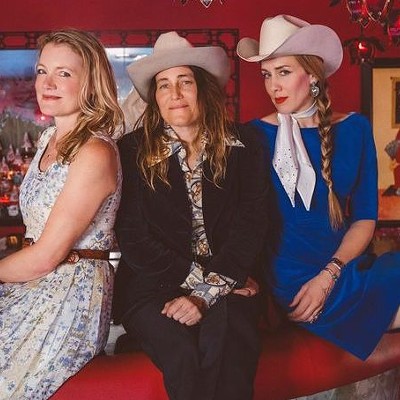Texas music lovers have one more thing to celebrate as of today. The United States Postal Service is issuing a new series of stamps titled Music Icons, and Houston's own Lydia Mendoza is the first honoree.
Long before Selena, there was Lydia Mendoza. A master of the twelve-string guitar, Ms. Mendoza became the first female star in the all-male field of Tejano music when, at age 18, she cut her most famous tune, "Mal Hombre" (essentially "Evil-hearted Man") for RCA Victor subsidiary Bluebird Records in 1934. The track has been called the first Tejano music recording.
Mendoza immediately became a regional and then national radio star in the era before television. But under the musical leadership of her mother Leonora and the management of her father Francisco, Lydia Mendoza had already been performing in the streets, markets, and bars of San Antonio.
With her family, she was recording for the Okeh label as early as 1928 as part of Cuarteto Carta Blanca. The group had a strong presence in San Antonio, where the Mendoza family had relocated in early 1928.
The Mendozas regularly performed in the Plaza de Zacate and were a well-known local attraction in the Mexican-American community. Noted musicologist Chris Strachwitz described the Mendoza family as being similar to the Carter Family, the "first family of country music." Numerous parallels between the two families exist, from their recording during the same period to the fact that while both groups were headed by a male, the females were the stars and primary vocalists.
But while the Mendoza family band provided a way to pay the rent, it was Lydia's first solo recording, "Mal Hombre" -- which earned her a whopping $60 -- that captured the public imagination, rapidly vaulting her to first regional and then to national stardom.
Mal hombre, tan ruin es tu alma que no tiene nombreEres un canalla, eres un malvado
Eres un... mal hombre
(Evil man, so mean is your soul it has no name
You are a scoundrel, you are a wicked one
You are an... evil man)
As Mendoza's career and fame grew, she became known as La Alondra de la Frontera, or "The Lark of the Border," but was also referred to as La Cancionera de los Pobres ("Songstress of the Poor People"). Her music frequently addressed the political and social situation of Chicanos as well as love, heartache, and other human foibles.
Mendoza's popularity in the border states was literally incalculable. According to Teresa Paloma Acosta, her songs awakened "a populist frenzy and collective pride in Mexicans."
Mendoza recorded and toured for six decades and recorded more than 1,200 songs and 50-plus albums. She performed for President Jimmy Carter in 1977 and is the recipient of numerous national awards including a Fellowship from the National Endowment for the Arts. President Bill Clinton presented her with the National Medal of Arts in 1999.
Mendoza's career finally ended when she suffered a stroke in 1988, and she died at age 91 in San Antonio on December 20, 2007. She was inducted into the Tejano Music Hall of Fame in 1982 and the Texas Women's Hall of Fame in 1985. The effect of her career is incalculable in its influence on future generations of performers.
While Mendoza is the first artist to be honored in the series, a Johnny Cash stamp will be released this summer and a Ray Charles stamp is set for Fall release. The stamps are designed to resemble the sleeves of 45 rpm records and can be ordered at usps.com/stamps.
Follow @hprocksoff





